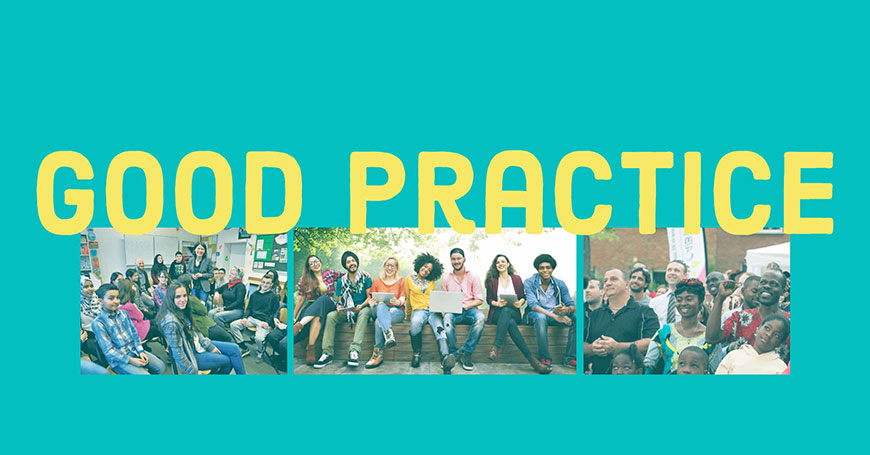Intercultural cities: good practice examples

The first step is the adoption (and implementation) of strategies that facilitate positive intercultural encounters and exchanges, and promote equal and active participation of residents and communities in the development of the city, thus responding to the needs of a diverse population. The Intercultural integration policy model is based on extensive research evidence, on a range of international legal instruments, and on the collective input of the cities member of the Intercultural Cities programme that share their good practice examples on how to better manage diversity, address possible conflicts, and benefit from the diversity advantage.
This section offers examples of intercultural approaches that facilitate the development and implementation of intercultural strategies.
Mondinsieme’ Assembly
Purpose: Citizen engagement and citizen participation are key elements for the Municipality of Reggio Emilia. Calling itself “La Città delle Persone” (the City of the People), the administration of...
Actions of the City of Reykjavik to improve participation in local elections
Purpose: The City of Reykjavik has initiated various practices to increase migrants´ participation in local political elections. One practice organised by the Icelandic Women’s Rights Association...
Women, Health and Violence
Purpose: This programme seeks to empower women from all origins and socio-cultural backgrounds in Bilbao through the promotion of health and the prevention of gender-based violence. It aims to...


